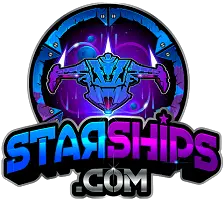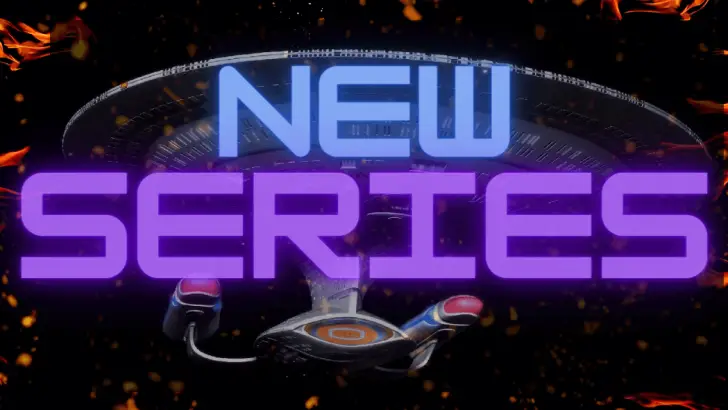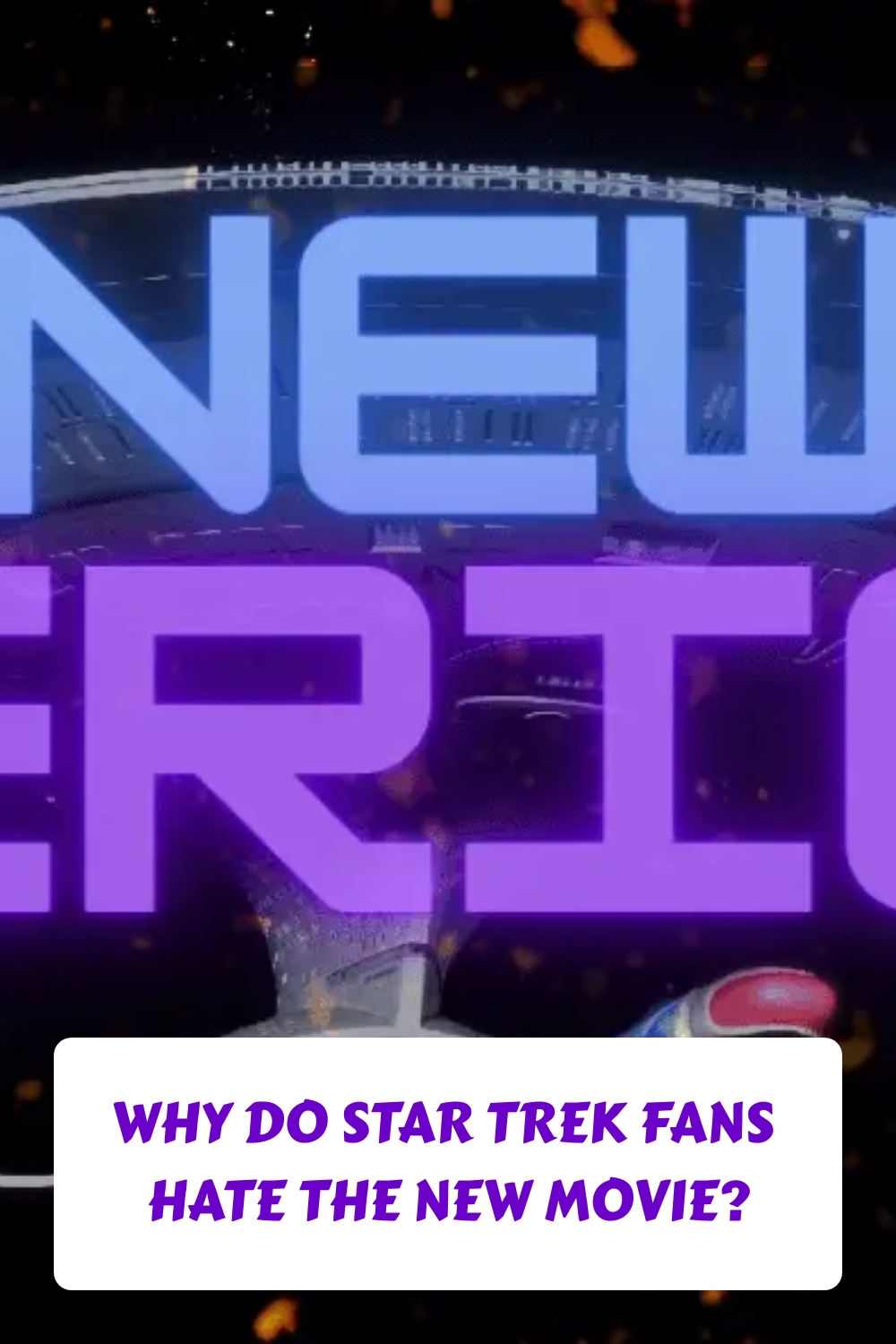In 2009, when J.J. Abrams did a soft reboot of the Star Trek movies, several Star Trek fans boycotted the franchise and refused to watch them. When the last three new Star Trek series aired, many purist fans were wary about watching anything that didn’t continue the storyline from Deep Space Nine and the Next Generation. Why are Star Trek fans so reluctant to embrace new movies and series?
Star Trek fans hate the new movie reboot because they are not canon to the Original Series. Fans don’t want another prequel; fans want a continuation of the canon and refuse to watch anything that doesn’t match it. Fans also want a safe show that has a happy ending.
Are you in the same boat as other Star Trek fans and wish that the producers would continue the canonical story? Read on to find out why that probably won’t happen.
The Star Trek Franchise Includes Variations That Fans Didn’t Like
The Star Trek franchise started with the Original Series (TOS) and sparked millions of viewers’ imagination. While it had poor ratings when it first aired, it became increasingly popular after syndication. Fans fell in love with the utopian view of the future and how humanity would someday make it to space and work together for the greater good.
Then the Next Generation came out, and TOS fans were upset because it didn’t include Kirk, Spock, and the rest of the original crew. But as the series continued, fans became enamored with more new technology, new aliens, and a new crew that worked well together and worked their way into fans’ hearts and homes every week.
With every new series, fans were disappointed because it wasn’t what they expected. Let’s take a look at some of the franchise’s newer dramas and why they didn’t meet the fans’ expectations.
J.J. Abrams’ Reboot Movies
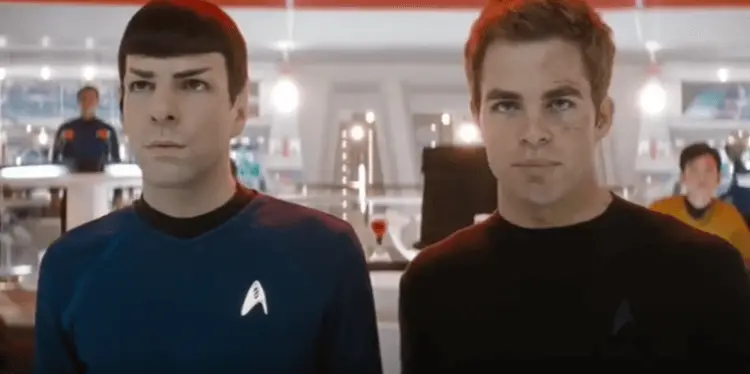
The 2009 Star Trek and the other two movies that followed are set in an alternate timeline, i.e., the Kelvin timeline. The storyline starts with the Romulan sun going supernova, killing many on the homeworld of Romulus. A Romulan commander, Nero, was very angry because Spock claimed he could stop it from happening, and he didn’t.
During the fight between Nero and Spock, they both get sucked back to the 22nd century. Nero, in his quest for revenge against Spock of the Prime timeline, attacks the first Federation ship he came across. That ship happened to be under the command of George Kirk, James Kirk’s father.
George is killed on this mission when James was a child in this timeline, whereas James Kirk’s father, in the original timeline, saw him graduate from Starfleet Academy. While several things stayed the same, several differences angered Star Trek fans.
Many fans believe that the new reboot movies capture the Star Trek franchise’s essence and are happy to watch Star Trek movies and shows.
Other fans, however, felt just the opposite and thought that it failed to capture the intelligence of the original series. The first movie in the alternate timeline failed to grab the purist fans loyal only to the canonical movies and shows. But the next movie, Star Trek Into Darkness, brought in more fans, as it began involving fans into a vaguely familiar story to Star Trek II: The Wrath of Khan.
While the storyline is different from the Prime timeline, it does have similar elements, and it drew in more fans than the first reboot movie did. Some fans are purists and refuse to watch them because they don’t want to see alternate timelines with their favorite characters.
Star Trek: Enterprise
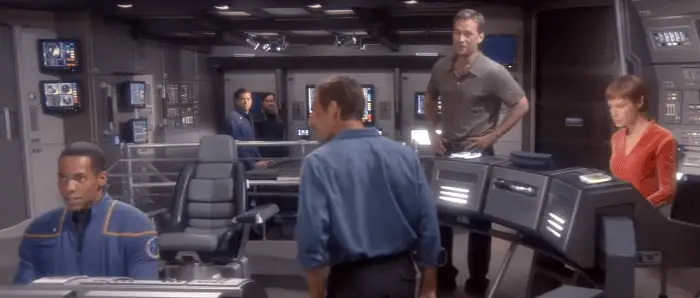
Star Trek: Enterprise is a prequel to TOS and explains how space exploration started in the Prime timeline. It follows the crew of the very first starship Enterprise as they take the first steps further into space than any human had taken before in history, and the struggles and triumphs they face while exploring space.
The first Enterprise could only travel at warp five, which was the fastest ship Starfleet had at the time. Freighters could only travel at warp 1.5, so it was a significant improvement over freighters. The ship’s technology was limited compared to later ships, but it was considered advanced for the age. They didn’t have tractor beams, but they had grappling hooks that didn’t always work in every condition they faced.
While the technology was limited, the enthusiasm for being in space, going on away missions to planets, and serving on board the ship seemed greater than later series because of its novelty. In later series, officers serving on space ships often longed to go home due to how long they were in space. But the Enterprise crew stayed in space as long as they could.
Star Trek fans didn’t really like this series because it was a prequel to the Original Series, and it lacked certain qualities that the series had. The playful nature of Spock’s and McCoy’s relationship was missing on Star Trek: Enterprise. While the series’ creators tried to get this going between Trip and T’Pol, it didn’t quite happen and missed the mark.
Fans who loved TOS also were upset with the intro music of Enterprise, as it was not the same song. The last reason that fans disliked Enterprise is that it just wasn’t familiar territory. Fans want familiarity and a crew they recognize right away without learning new stories, new characters, and new technology.
Star Trek: Voyager
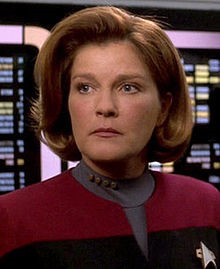
While a part of the Prime timeline, Voyager was not very well received when it first aired. The intro score was similar to other Star Trek series, but it was a different ship. An Intrepid-class starship, it was the fastest ship in the fleet and could travel at warp 9.9. It also had advanced weaponry that allowed the ship to get out of sticky situations if the need arose.
This ship got pulled into the Delta quadrant as they searched for the missing Marquis ship. Both the Marquis crew and Voyager crew got stuck together in the quadrant and ended up being part of one crew–a Starfleet crew. Seventy thousand light-years from home, the Voyager crew did everything they could to find quicker ways home while trying to stay in one piece.
Along the way, they encountered new species, new circumstances, and new enemies. The Kazon race was the Delta Quadrant’s Klingon race and the natural enemies of Voyager. While there were several short stories with each episode, the same storyline wove its way throughout the series. That storyline was whether they would get home to Earth or not and if they would die out in the Delta Quadrant.
Fans wanted a similar series based in the Alpha quadrant and a continuation of the storyline that Deep Space Nine and the Next Generation started. But after the second season of Voyager, many fans came around and started watching every week to see if they would ever get home. Though some did not, most fans grew to love the new show.
Star Trek: Discovery
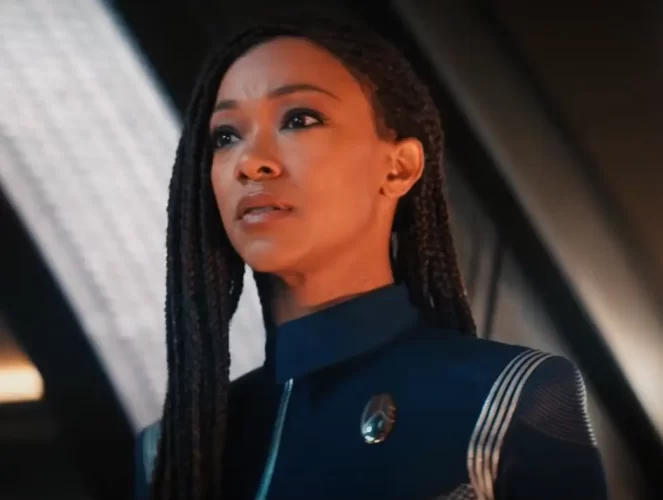
Star Trek: Discovery is a newer series in the franchise and is set ten years before the Enterprise adventures with Kirk, Spock, and Bones. It follows Micheal Burnham, foster sister to Spock, and an officer that ended up on the Discovery through a difficult series of events that led the Federation into a war with the Klingons.
The first season shows how the war started, how Micheal ended up on the Discovery, and how they landed in an alternate reality where the Federation is the Terran Empire, and the Klingons are the good guys. They escape, go into the second season to meet Captain Pike, and then end up going 900 years into the future with no way back.
Reactions to this series were mixed. Some fans find it in their hearts to embrace anything from the franchise, while other fans watch it to hate it.
One of the complaints against Discovery is that the ship has better and more advanced technology than the Enterprise ten years later. A spore drive allowed it to jump to any point in the galaxy in a matter of seconds. Communication with people from the ship was through holographic technology and not through a monitor like other ships, even one hundred years later.
Star Trek: Picard
Picard continues where Nemesis left off 20 years prior and shows what happened since then for Picard and the Federation. It also follows him in his quest to find the synthetic twin to the girl who found him before she was killed. His travels led him to an ex-Borg cube that ex-drones and Romulans occupied since the Romulan evacuation.
Fans didn’t like this show because, while it featured a favorite Star Trek captain, it wasn’t safe and nice like the other series. Picard took a hard look at the world of a Federation and Starfleet that didn’t follow the rules or didn’t play nice. Many people couldn’t handle that because they were used to a Starfleet that never changed or never played on the tracks’ wrong side.
Picard is not a “safe” show, and there were no more “feel good” decisions that were the hallmark of the Original Series and the Next Generation. No one is there to hold the fans’ hands as the storyline continues. Fans want a safe show.
Star Trek: Lower Decks
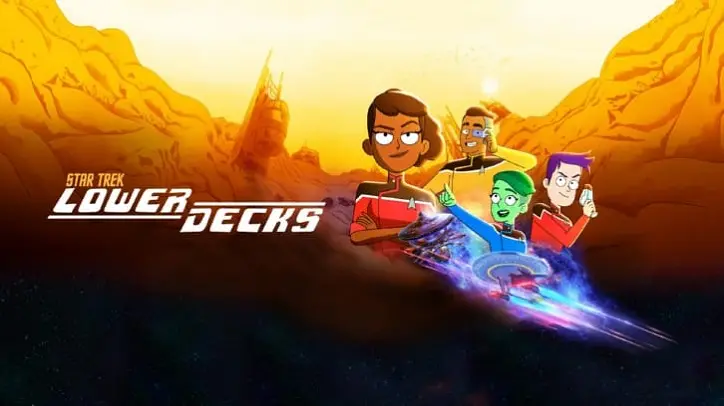
The Lower Decks is an animated series–the first since they turned the Original Series into an animated series. It focuses on the ensigns’ adventures on the ship Cerritos, set in the same time frame as the Next Generation crew, or even a few years later.
The episodes feature a different story in each one, but there is a general theme running through them that shows how the ensigns and other lower officers deal with serving on a starship.
Again, fans are polarized in that some feel it is irreverent and disrespectful to the intent of Star Trek, while others feel it is a refreshing look at how the other half lives and serves on a starship. The lack of respect for the chain of command, according to some fans, is why this series can never compete with the other series.
Some Fans Are Purists and Don’t Want New Shows
Those who grew up watching reruns of the Original Series and became die-hard fans don’t have room in their hearts for diversions in the storylines. They want the storyline to stay constant without diversions or alternate timelines pushed into the mix. But fans who are purists not only miss out on new shows, they miss out on new and important information that rounds out the Star Trek universe.
New shows offer a new perspective on Starfleet and the Federation that TOS didn’t give, nor could they in the time allotted. When TOS originally came out in the mid-1960s, no one had heard of Starfleet or the United Federation of Planets. No one knew how Earth got into space exploration except for what they gave viewers through the episodes.
When new shows came out, including The Next Generation, Star Trek purists wanted to hate them because it’s not TOS. New shows like Star Trek: Enterprise gave fans more information into how the early days of space exploration went and how the Prime Directive came about. But because it’s not TOS, purists miss out on extra information.
Fans Don’t Want to Like Another Series or Movie
The reboot movies from J.J. Abrams appealed mostly to the younger viewers because they did not grow up with TOS and The Next Generation like older viewers did. They were more open to an alternate timeline and were willing to explore what could happen if someone with evil intent went back in time and altered the line.
Even with the shows that came out within the last few years that are part of the Prime timeline, fans don’t want to like another series or movie. They watch, but according to Jonathan Frakes, “They watch it to hate it!”
Star Trek Fans Want Continuity, Not Prequels
Prequels rarely have the same popularity as the original movies or series. Whether it’s Star Trek or not, fans of most movies or series want continuity of the storyline rather than a back story. Star Wars might be an exception to that statement, as fans flocked to see 1, 2, and 3 after growing up with 4, 5, and 6. But in most cases, a prequel is not very popular.
Enterprise and Discovery are prequels, which might explain why they are not popular with Star Trek fans.
Picard Is Not a “Safe” Show Like The Next Generation
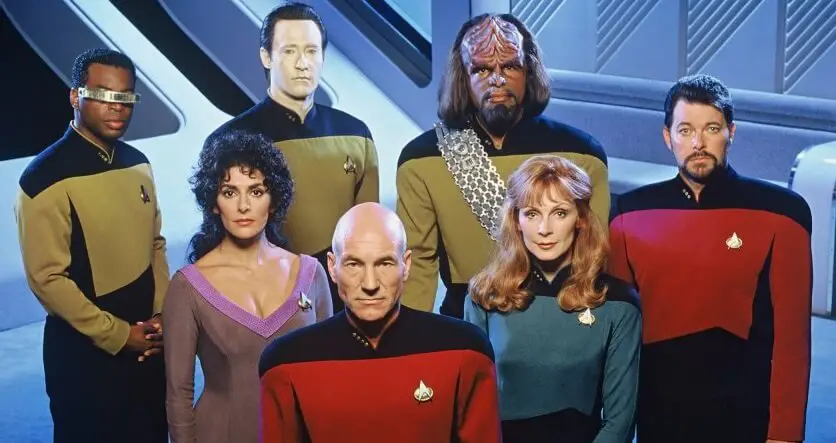
Picard is a show that doesn’t hold back or mince words or ideas. It shows people within Starfleet and the Federation collaborating with Romulans. It shows how even the top brass in Starfleet can be persuaded to work for the other side.
The show is edgier and darker than many other Star Trek series or movies, and many fans were not happy that it wasn’t near the same caliber as The Next Generation series, where Picard first was introduced to the fans.
Fans like the safety and security that the earlier series provided them. So when fans watched Picard and saw how no one in the organization could be trusted, it made them feel uneasy–like when a friend suddenly betrays them, and they don’t know who to trust anymore. While Picard did not betray its fans, it did go to the darker side.
Except for Discovery, all other Star Trek series have happy endings that give off good vibes and help the viewer envision a better future. However, Picard does not help the viewer envision a better future until the end of the season finale, which made fans uneasy with the entire series. Fans want a “safe” show.
Discovery Has More Advanced Technology Than The Original Series
Normally when new ships come into a fleet, the technology is more advanced than the earlier ships. However, in the case of the Discovery versus the Enterprise, the former is more advanced than the latter, even though the Enterprise was supposedly a newer ship. Discovery has much more advanced technology, which upsets many of the fans.
The Enterprise from the Original Series had many knobs, buttons, levers, and barely any monitors to talk with people within the ship and on other ships. Besides the main viewer screen on the bridge, there were no other monitors to view others while having a conversation with them.
Discovery had holographic technology and screens that weren’t screens that people could touch and manipulate for information. It also had a spore drive that could make the ship jump to any point in the galaxy in seconds.
This much technology was on a ship that existed ten years before the Enterprise under James T. Kirk, which irritated several fans. A ship that exists before that time should not contain that much technology without the Enterprise also containing that much technology.
Perhaps that is the main reason why fans have not taken well to Discovery—it has much more advanced technology than it should for the time it is existing.
Why Do Star Trek Fans Hate Voyager?
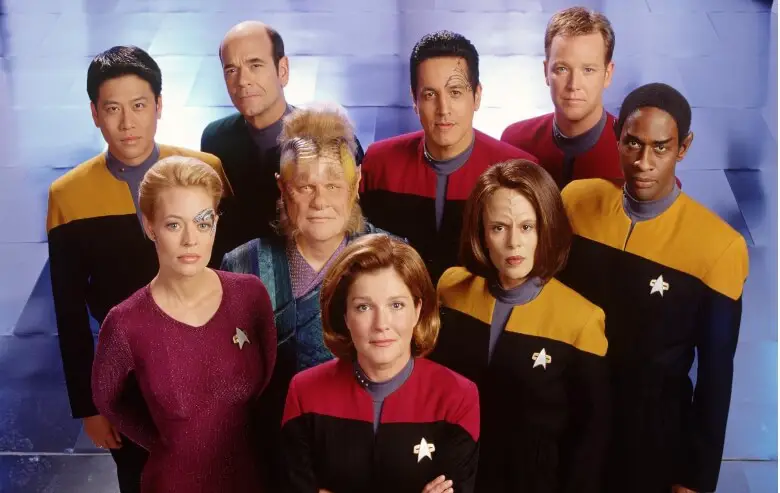
Some Star Trek purist fans weren’t too crazy about Star Trek: Voyager because it wasn’t a continuation of the Enterprise crew drama. It did continue the Prime timeline, and there were several references to the previous series or movies made in several Voyager episodes. However, since it was a show that didn’t focus on the Enterprise, many fans refused to watch it.
But as the seasons continued, more people tuned each week to see if the Voyager crew would get home. And it became part of the Star Trek canon by the time they got back to Earth. Much of the Starfleet personnel worked together to help Voyager find its way home, including Lieutenant Barclay and Counselor Troi from the Enterprise, and Admiral Paris, Tom Paris’ father.
In the movie Nemesis, Admiral Janeway had a brief conversation with Captain Picard, which means that the Voyager crew became part of Starfleet history. Many fans seem to have accepted this fact and now accept Voyager as a valid Star Trek series.
“Enterprise” Was a Prequel
As mentioned previously, several fans didn’t like Enterprise because it was a prequel. When fans get into a series or movie, they want to go forward in the story–not backward. But Star Trek: Enterprise took fans back to the beginning after Zefram Cochrane flew his warp ship and got the attention of the Vulcans. It showed the beginnings of space travel and how the United Federation began.
After Deep Space Nine, The Next Generation, and Voyager ended, fans expected a continuation of the same time frame. They didn’t expect to be taken back in time before TOS, and they certainly didn’t expect the non-Star Trek opening theme song. Star Trek fans essentially rejected the new series, but it did explain many things that TOS failed to explain.
The series finale showed Commander Riker and Counselor Troi “attending” the holodeck meeting where the Federation was signed into being, with Captain Archer at the forefront of the alliance. But many fans may have missed that moment because they stopped watching it in the first season. Maybe, if fans are willing to give it another chance, they might find they enjoy it more than they did initially.
The Lower Decks Is Too Irreverent to Be a Part of the Franchise
In the first episode of The Lower Decks, the main characters are Ensigns and lower officers who don’t have much control over the ship. It has more latitude to play around with the characters, special effects, and aliens as an animated series. But the overall attitude of the characters and the bridge crew does not match what Star Trek has become to most fans.
The Lower Decks is more of an “Adult Swim” type of cartoon developed by the creator of Rick and Morty and is too irreverent to be a part of the Star Trek franchise. It doesn’t have the same intellectual and professional quality amongst the characters that other series have. For this reason, Star Trek fans are turned off to this new animated series.
Fans believe that a Star Trek series should be more intellectual and reverent to the original theme. But this series does not have that, which is most likely due to the series focusing on the ensigns rather than the officers. (Editors Note: I personally loved this show, and it’s great for new people getting into Star Trek)
Most Star Trek Fans Like the New Shows, But Not All Fans
Many Star Trek fans look forward to the new Star Trek movies and series. They want more stories, the same type of characters, and more development in the storylines already established, and are generally happy when new series and movies come out. However, some fans are skeptical and wary of anything new and different.
Purists want to keep the same timeline and feel to any show that comes out, without compromising the integrity of what Star Trek means to people.
It Might Be Time to Embrace Change
The Star Trek franchise always dealt with issues in an open and forward-thinking manner, which most fans love. Each series and movie showed the positive in whatever the crews faced, even if the odds were against them, and they were not expected to survive. While the new shows still do that in some ways, they reflect society and what is happening in our current time. We don’t live in a utopian society.
There are a few reasons why it might be time to embrace change within the Star Trek franchise.
- Gene Roddenberry, the Star Trek universe’s original creator, is dead, and his ideas and management have gone with him. New ideas have infiltrated the franchise, and there is an air of experimentation with the shows.
- Star Trek shows have always reflected real life and what was happening in the culture. Today’s issues are dark and heavy, which is why the newer shows are dark and heavy.
- Star Trek is about change and growth and not staying stagnant in stories and themes. Fans need to also grow with the stories and themes or not.
Change is not always an easy thing to embrace. But Star Trek fans might need to step boldly into new territory, which is, after all, Star Trek’s main theme.
Conclusion
Star Trek fans hate the new movies and series because they’re not a “true” continuation of TOS and the Next Generation. But the new movies and series capture the spirit of Star Trek: “To boldly go where no one has gone before.” Many Star Trek fans have the same spirit of seeking out new adventures and stories.
If this article accomplishes anything, it should inspire you to watch those shows that you initially rejected because of your prejudices. Not only will you discover the background of the Star Trek universe, but you will also learn what could happen when someone pollutes the timeline.
Sources
- Star Trek: Voyager
- Wikipedia: Star Trek Into Darkness
- Cosmic Book News: Hardcore Fans Hate ‘Star Trek Picard’
- Explore Entertainment: Why Is Everyone So Upset About ‘Star Trek Into Darkness’?
- Opelika-Auburn News: Two Reasons Why ‘Star Trek’ Fan Should Hate the Star Trek Beyond Trailer
- Vulture: Why Trekkies Don’t Like J.J. Abrams–And Why Star Trek Into Darkness Might Make Them Reconsider
- Trek Movie: Jonathan Frakes Talks ‘Discovery’ and ‘Picard’ Critics and His Future Directing Two New Star Trek Shows
- Screen Rant: Why Star Trek Fans So Dislike Lower Decks
- The Playlist: ‘Picard’ Showrunner Expected Unhappy Fans
- Radiotimes: Star Trek Discovery’s Jason Isaacs Thinks Some Critics Aren’t True Trek Fans
